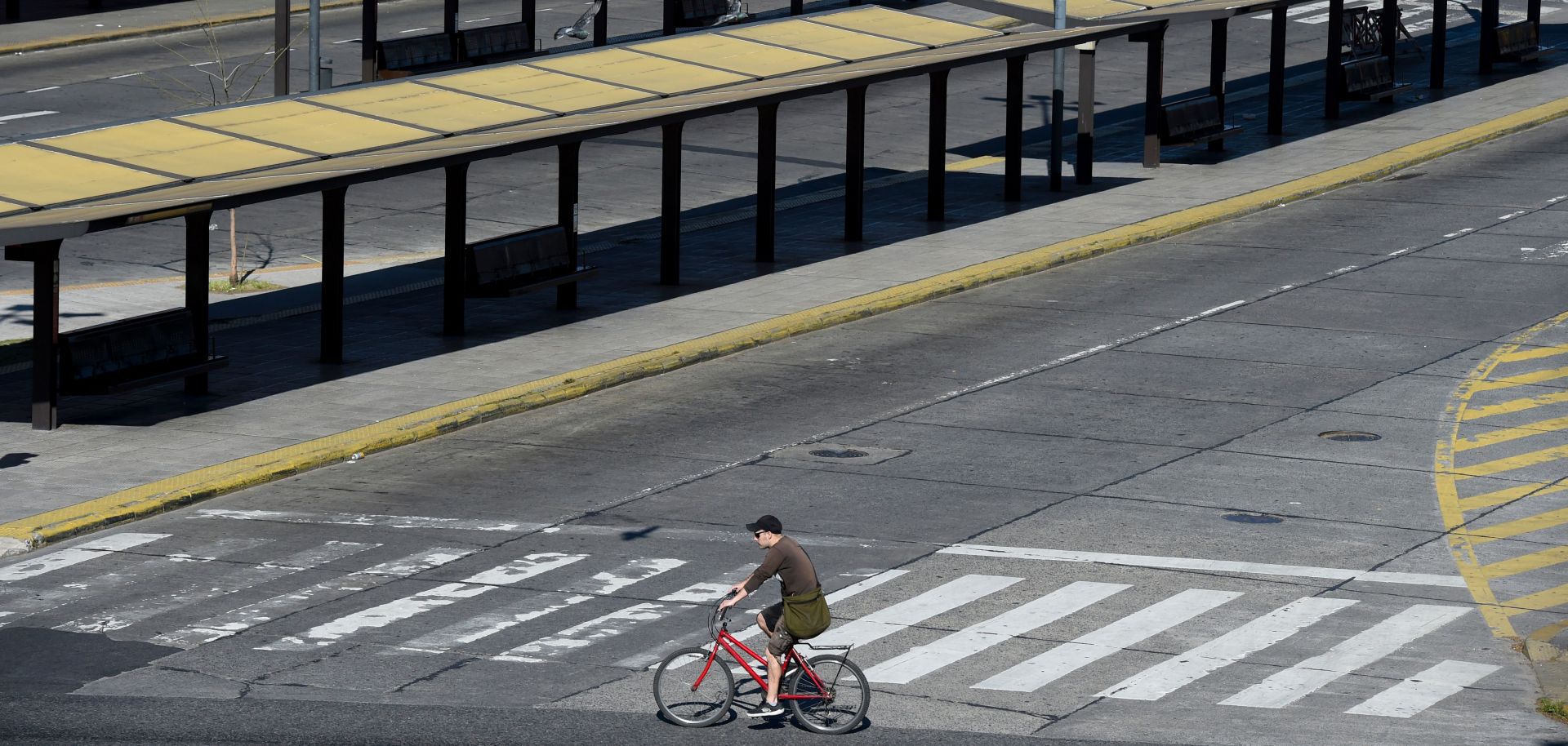ASSESSMENTS
In Argentina, One Candidate's Crisis Is Another Candidate's Opportunity
Sep 28, 2018 | 10:00 GMT

View of Constitucion train station and empty bus stops in Buenos Aires during a 24-hours general strike, on September 25, 2018. - With no public transport or taxis running, Tuesday's strike was largely respected, as many shops remained closed and citizens found themselves unable to get to work. The strike was called to reject an austerity budget that Argentine President Mauricio Macri says is needed to secure IMF funds. (Photo by EITAN ABRAMOVICH / AFP) (Photo credit should read EITAN ABRAMOVICH/AFP/Getty Images)
(EITAN ABRAMOVICH/AFP/Getty Images)
Highlights
- Argentine President Mauricio Macri's administration will likely try to continue its efforts at economic reform, despite their unpopularity.
- By pursuing further austerity measures, Macri will lose support, dimming his prospects for re-election and casting doubt on the future of Argentina's economic liberalization.
- A corruption investigation involving Argentina's main opposition figure, Sen. Cristina Fernandez de Kirchner, could mar her presidential campaign, leaving fellow Peronist candidates in good stead to win the race and temper the country's economic reforms.
Subscribe Now
SubscribeAlready have an account?
